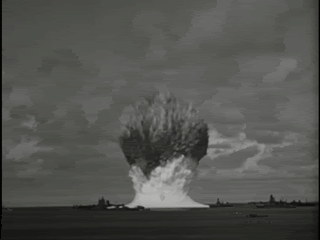- Reaction score
- 5,970
- Points
- 1,260
SupersonicMax said:But how we employ power changed greatly since... Strategic attacks on civilian (essentially terrorizing them so that pressure is put on the Governments to capitulate) doesn't fly anymore. That and we're fightig an ideology, not nations with regimes using an ideology.
Both perceptive and correct, Max, and it's why Tuan is marching somewhere near parallel to the right track when he talks about "soft power," but, the ideology at work, in the Middle East, is a religious one (and maybe I should say "are religious ones") and it/they is/are ones that has/have had deep divisions since very near the very beginning of Islam.
At a guess, all of Islam need some (more rather than less) reformation ... but my guess also ought to tell you that I sympathized with Francis Fukuyama a few years ago ... I











